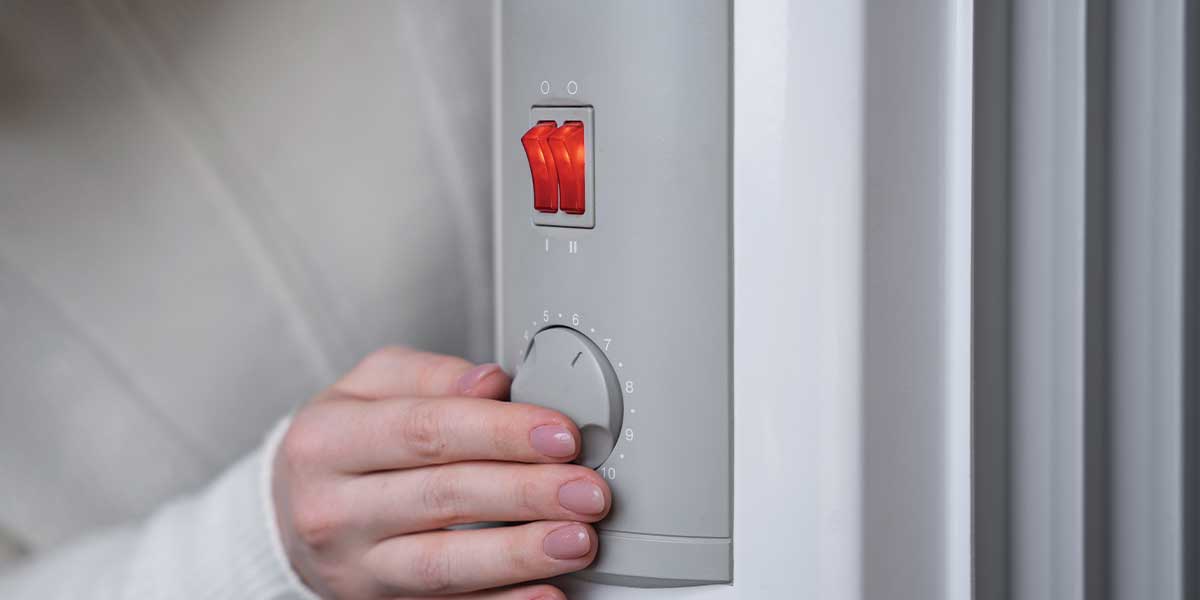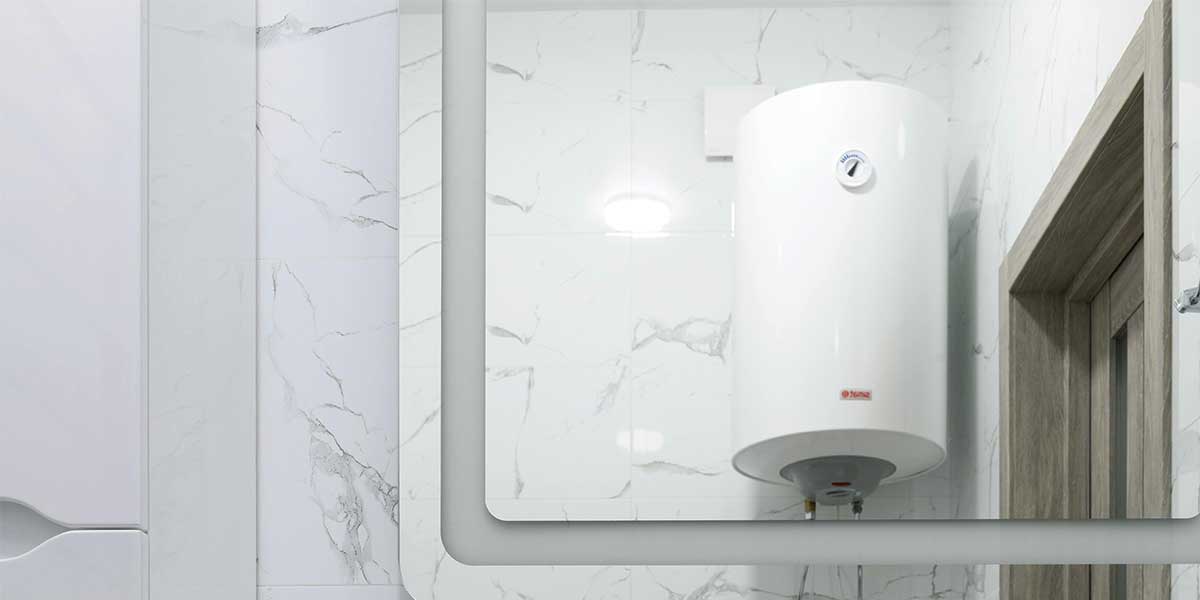If you’re a homeowner looking to lower your electric bill, your electrical water heater could be the hidden culprit. These appliances work silently in the background, keeping water hot 24/7, even when you don’t need it. At Expert Electric, we know that optimizing your home’s energy use starts with small, strategic changes.
In this comprehensive guide, we’ll share energy-saving tips and resources to help you get more from your electrical water heater, without sacrificing comfort. Whether you’re shaving costs off your monthly utility bill or upgrading for long-term savings, these strategies will help you make smart, sustainable choices.
1. Turn Down the Thermostat on Your Electrical Water Heater
Many water heaters are factory-set to 140°F, but this is often higher than necessary. Reducing the temperature to 120°F can help cut water heating costs by 3-5% for every 10°F you lower it.
Benefits of Lowering the Thermostat:
- Reduces standby heat loss (when water is heated but not used)
- Protects against scalding (especially in households with children or seniors)
- Extends the life of your heater by reducing wear and tear
Pro Tip: Test your water temperature at the tap before adjusting the thermostat. Aim for a balance between safety and energy efficiency.
2. Use Less Hot Water: Small Changes, Big Results
Want to save money? Use less hot water.
Easy Ways to Cut Back:
- Install low-flow showerheads and faucet aerators: Reduces water use by up to 60%
- Switch to cold water laundry cycles: Modern detergents work just as well in cold water
- Set your dishwasher to eco or energy-saving mode: Skip pre-rinsing and save gallons daily
Reducing hot water usage doesn’t mean sacrificing cleanliness or comfort. It simply means being mindful of habits and upgrading fixtures.
3. Drain Sediment to Improve Efficiency
Sediment buildup from minerals in your water can form a layer of insulation at the bottom of your tank, making it harder for the heater to work efficiently.
How to Drain the Sediment:
- Turn off the power to your electric water heater (safety first!)
- Shut off the cold water supply
- Connect a garden hose to the tank’s drain valve and lead it to a nearby floor drain
- Carefully lift the pressure relief valve and open the drain valve
- Let it flow until clear water comes out
Do this every 6–12 months to keep your tank running at peak efficiency.
4. Insulate Hot Water Pipes
Uninsulated pipes lose heat as hot water travels from the heater to your faucets. That means longer wait times and wasted energy.
How Insulating Pipes Helps:
- Delivers hot water faster to taps and showers
- Reduces heat loss by 2–4°F
- Saves energy and water every day
Focus on pipes in unconditioned areas such as basements, crawl spaces, or garages. Use foam pipe insulation for a quick DIY fix.
5. Insulate the Hot Water Tank Itself
If you have an older water heater (especially pre-2000 models) located in an unheated area, insulating the tank is a smart move.
Why It Works:
- Reduces standby heat loss by 25–45%
- Saves 4–9% on water heating costs
- Extends the life of your unit
Important: Do not cover the thermostat, burner, or top of a gas heater (but this guide focuses on electrical units). Purchase a pre-cut insulation blanket from a hardware store or online for easy installation.

6. Install a Timer or Use Smart Controls
Your electrical water heater doesn’t need to run 24/7. A timer or smart water heater controller allows you to schedule operation based on your actual usage.
Benefits:
- Turns off heating during sleeping hours or when you’re at work
- Can reduce electricity use by 10–30%
- Many models offer Wi-Fi control and energy reports
This simple upgrade helps you avoid heating water when no one’s home, cutting waste and utility costs.
7. Upgrade to an Energy-Efficient Water Heater
If your unit is over 10–12 years old, it’s time to consider a replacement.
Energy-Saving Alternatives:
- Heat pump water heaters: Use electricity to move heat instead of generating it, up to 60% more efficient
- Tankless electric water heaters: Provide hot water on demand, eliminating standby losses
- ENERGY STAR® certified models: Guaranteed to meet modern efficiency standards
Investing in a new unit may cost more upfront, but the energy savings often pay off within a few years.
8. Monitor Usage With Energy Tracking Tools
If you’re serious about energy savings, consider using a home energy monitor that tracks your electrical water heater consumption.
Popular tools like Sense, Emporia Vue, and Neurio help identify energy hogs and suggest usage patterns. With real-time data, you’ll know when and how your water heater is costing you money—and take action to reduce waste.
9. Use Renewable Energy Incentives and Rebates
Many provinces and utility providers offer rebates or incentives for upgrading your water heater or installing energy-efficient plumbing fixtures.
Check out ENERGY STAR® Certified Products for high-efficiency water heaters and home appliances that meet government-backed performance standards.
Visit Natural Resources Canada’s Energy Efficiency Programs to explore federal incentives, rebates, and tools to help you save energy at home.
FAQs About Electrical Water Heater Energy Saving Tips and Resources
How often should I drain my electric water heater?
We recommend draining sediment every 6–12 months, depending on your local water quality. This maintains efficiency and extends the life of your unit.
Is 140°F water temperature safe?
No. 120°F is sufficient for household use and helps avoid scalding while also lowering your electric bill.
Can I insulate all water pipes in my house?
Focus on pipes within unheated spaces first, like garages or basements. Insulating the entire house is possible but not always necessary for energy savings.
Are smart water heater controls worth it?
Yes, smart timers and apps let you control usage remotely, optimize energy consumption, and monitor performance with precision.
Should I replace my electrical water heater with a heat pump version?
If your current heater is over 10 years old or your energy bills are high, upgrading to a heat pump model can significantly reduce long-term costs.
Final Thought: Small Tweaks, Big Savings
Your electrical water heater plays a major role in your home’s energy use. With the right energy-saving tips and resources, you can reduce utility bills, extend the life of your equipment, and live more sustainably. These strategies are simple, cost-effective, and proven to work, no matter the size of your household.
Whether you’re tightening your monthly budget or investing in long-term efficiency, start with your water heater. The savings will flow, and Expert Electric is here to help guide the way.
Contact Expert Electric
Ready to optimize your home’s energy use or upgrade your electrical water heater system? Trust the experts.
Call Us: 604-681-8338
Email Us: info@expertelectric.ca
Let Expert Electric be your partner in achieving a safer, smarter, and more energy-efficient home. Whether it’s electrical upgrades, water heater troubleshooting, or new installations, we’ve got the tools, knowledge, and experience to power your goals.


